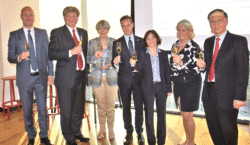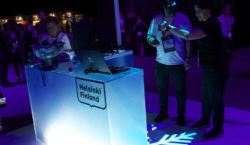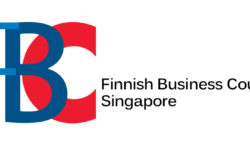Finnish Business Council in Singapore bears witness to that the city state is very much a hub for Southeast Asia, with a strong influx from Finland in recent years, including more start-ups and individuals than previously. FBC’s Mr Janne Lautanala talks to ScandAsia about the development.
Finnish Executive Janne Lautanala, who arrived to Singapore four years ago, joined FCB in the spring of 2018 –.as its new Chairman.
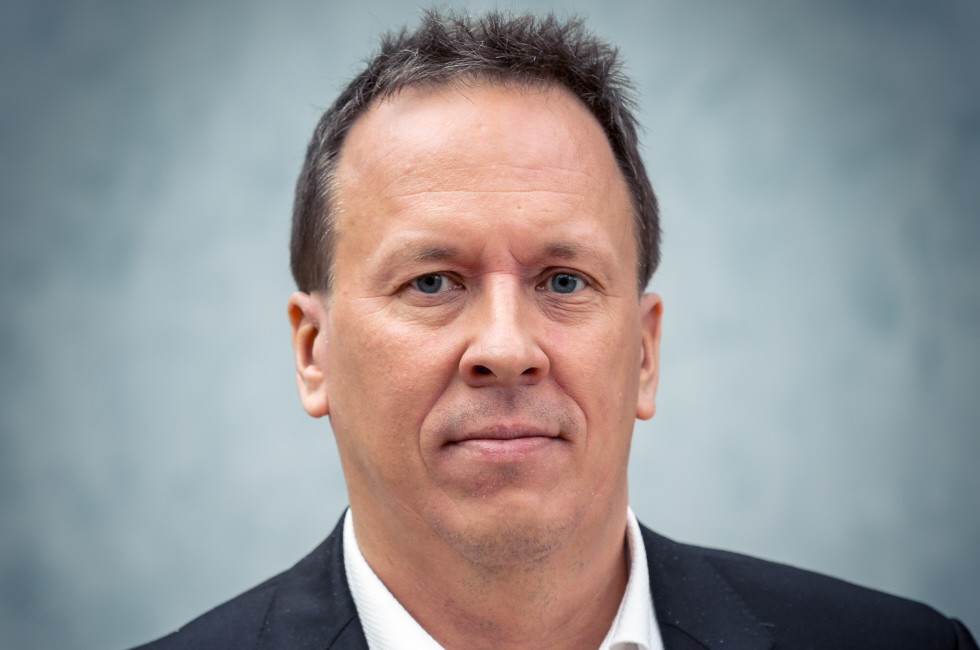
First of all Janne acknowledges that a transition is ongoing and that the interest in coming there from Finland, and indeed the Nordics, is increasing.
“Traditionally – and this applies probably to all of the Nordic countries – the business council members used to be these big multinational companies. Now it is more towards small companies and start-ups, even one-man/woman operations coming here. Their needs are very different from multinationals, and there is much more eagerness to enter the market and of course the smaller companies need much more help in finding the connections, dealing with practicalities, the legal stuff, closing the first deals etc. and we trying to help in those aspects also,” he says.
FBC is very much operated on a voluntary basis but tries to assist member companies and new arrivals as much as it can.
“People and Finnish businesses in Singapore want to enhance collaboration and business between Finland and Singapore. That is what we try to do, through a number of mechanisms: we arrange events and provide support for any new companies trying to enter the market. We have certain help to provide; for example coaching and mentoring. And of course we do heavy collaboration with the Embassy and Business Finland,” adds the Chairman.
All Board members are engaged in such efforts: “Everyone has a specific network, and depending on what the industry is, what type of help they need, we re-direct to the proper person. If legal advice we redirect to our lawyers, if education we have a person from Aalto University as a natural person to help out, if something relating to industrial contacts I can help out, or if digital it can be for example Anna Ratala from Slush Singapore. She is a natural person to help out in start-up-related matters.”
“The initial part is included into the membership fee; we try to help out as much as we can. If it starts to be really extensive we have partner companies or other companies who can help out and we try to do the matchmaking,” Janne adds concerning their “ceiling” of assistance.
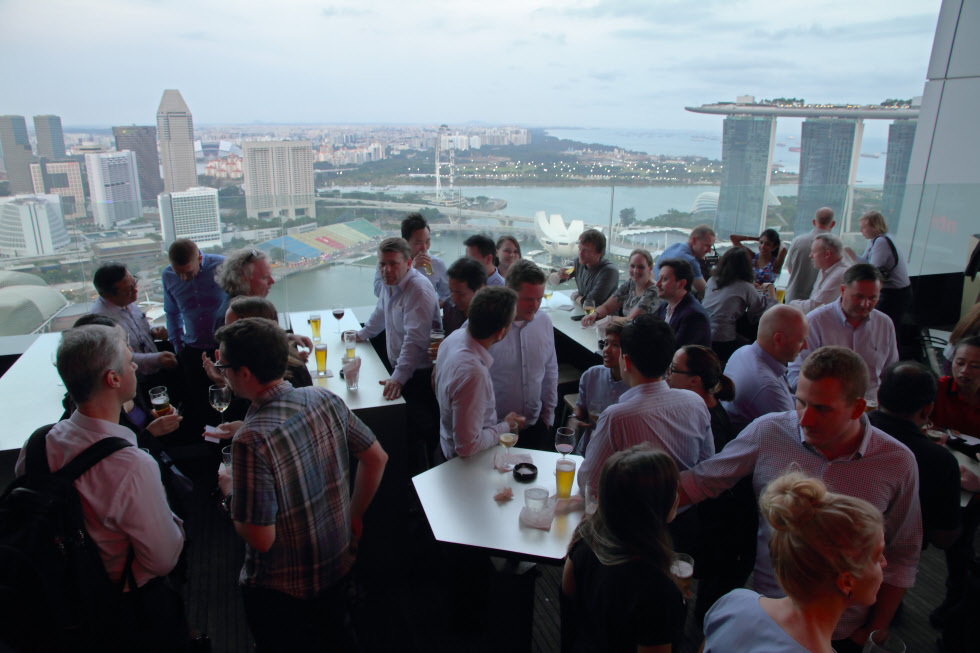
A starting point is that there are regular welcoming coffee events held at the embassy for new Finns arriving. There, FBC promotes the Finnish community network.
“Even if you’re not here on a job assignment FBC is a way to stay connected with the Finnish business community, look for work opportunities etc.”
The Chairman describes the participation in events and company member volume as “decent”.
“We would like to have even more individual people, consultants and what not, joining FBC, to see even more participation. And that includes the locals; we already have a few Singaporean companies with some kind of Nordic connection as members but we are aiming to welcome many more.”
Another focus is to have more collaboration with the other Nordic business associations. “We have organised joint evens and want to do that more and market each other’s events. What I have been seeing during the past year is that there are more and more people from other Nordic chambers attending events of other chambers. It’s a very good sign; to me it looks like the needs and challenges of the Nordic companies are actually fairly similar across the countries.”
Finland as a country, he feels, has in particular really been succeeding in gaining attention in Singapore and beyond.
“Finland 100 [100th anniversary of independence] in 2017 really helped out and Finland’s Ambassador Paula Parviainen and her team have done a really good job in increasing visibility and helping Finnish companies in making connections. Also, if you look in the media here there are more and more articles on Finland and the Nordics. I think the visibility and awareness around Nordic companies have really increased during the past 2-3 years, which is really good! And hopefully all that visibility and awareness turns into more business, for Nordic companies overall.”
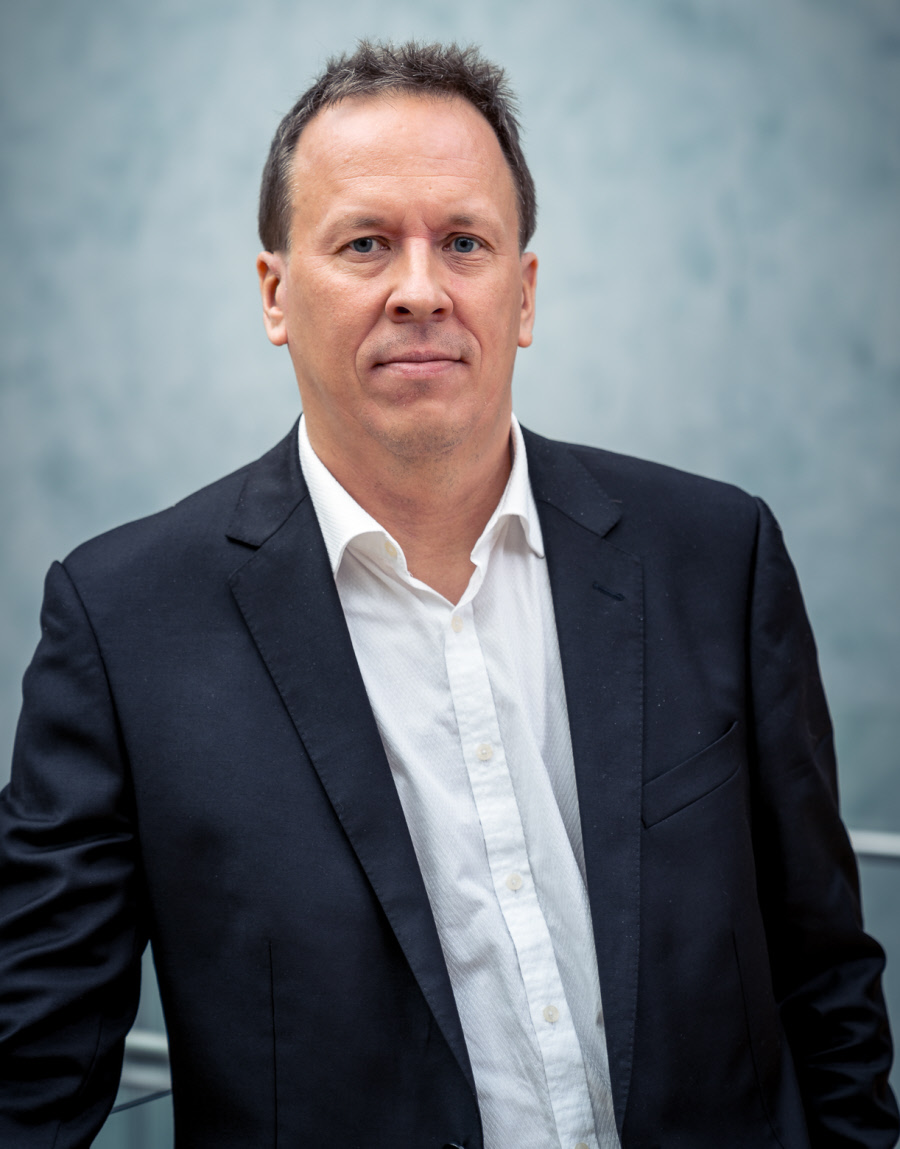 Singapore also still is a preferred regional hub location.“If you look at the multinational companies Singapore is a natural place if they want to enter these Southeast Asian markets; it’s a very safe and friendly place to come to. Especially Finnish companies first look to enter Singapore and then using that as a launch-pad to Indonesia, Malaysia and so on. It’s still is a major place for companies to place theit Asian headquarters. MacGregor, subsidiary of Finnish Cargotec, even moved their headquarters to Singapore, mainly because of having the majority of their customers here.”
Singapore also still is a preferred regional hub location.“If you look at the multinational companies Singapore is a natural place if they want to enter these Southeast Asian markets; it’s a very safe and friendly place to come to. Especially Finnish companies first look to enter Singapore and then using that as a launch-pad to Indonesia, Malaysia and so on. It’s still is a major place for companies to place theit Asian headquarters. MacGregor, subsidiary of Finnish Cargotec, even moved their headquarters to Singapore, mainly because of having the majority of their customers here.”
Setting up a business the Chairman thinks is very easy.“There are good facilities and the government helps out so you nave possibilities for grants and other mechanisms – they are really pushing the regional headquarters scheme here.”
In 2016 a report listed Singapore still as the most attractive destination for multi-national companies to set up their Asia Pacific headquarters (RHQs) thanks to comparatively lower costs, good business environment, and strategic location. These factors make Singapore a prime candidate for companies that wish to scale up. A new International Partnership Fund was also started in 2017 that co-invests with Singapore-based businesses in scale-up and internationalisation opportunities, with a focus on Asian markets.
“The main obstacles I have seen from companies are twofold. First, if you want to recruit the best talent there is huge competition here in Singapore. And if you want to bring in expatriates you have the quite tricky issue with getting the Employment Passes.”
Janne feels obtaining this permit has become more difficult but mostly relating to SMEs.
This leads on to the big increase in the start-up scene, where the government’s Enterprise Singapore assists foreigners to set up for instance as a Representative Office. Also, since August 2017 the ‘EntrePass’ scheme, under Startup SG, is enhanced to facilitate the entry and stay of promising foreign start-up talent in Singapore.
Significantly, Finland’s proud tech start-up event Slush entered Singapore in 2016, and the Nordic Innovation House (NIH-SG) has just started.
“I have very much been looking forward to Nordic Innovation House; it will further increase the start-up scene and Nordic start-ups’ eagerness to come to this market. Typically, one of the biggest challenges is closing the first deal, and if they can help to make the connections, help promote these great Nordic start-ups that are out there, and increase the commerce between the Nordics and Singapore, then, in my mind, they will have accomplished the mission.”
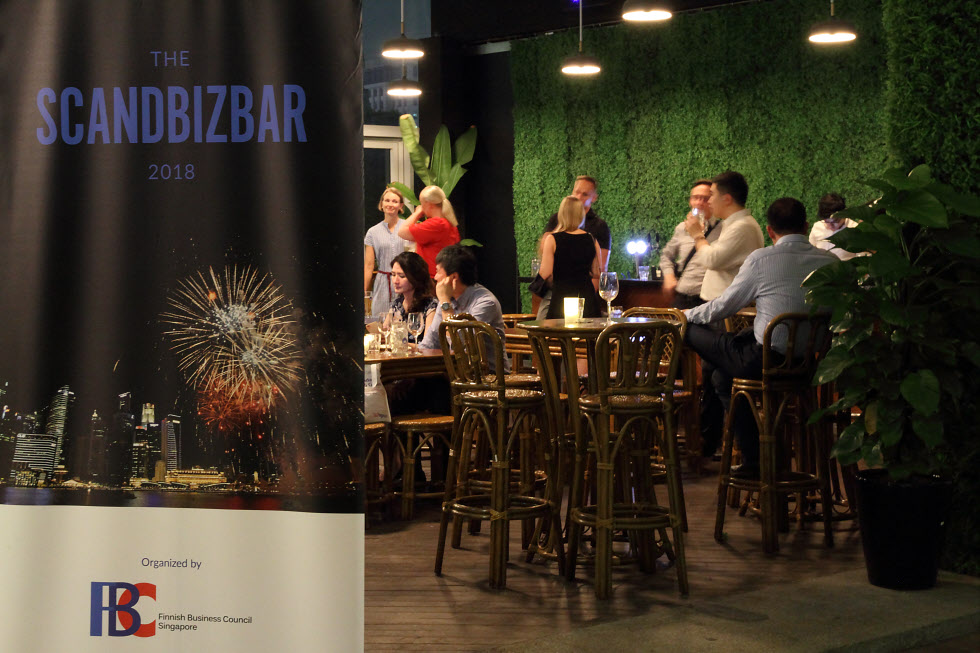
In his day job as General Manager of Wärtsilä’s Digital Foundry (an innovation lab both for internal and external innovation) Janne is very much in touch with the start-up scene, innovation and digital transformation. Wärtsilä has launched a Digital Acceleration Centre in Singapore.
“We are getting ideas and projects from our internal sources, academia, partner companies, and other sources, and are incubating them, first analysing if they are worth investing in more, if yes also and doing actual implementation,” explains the Finn.
In general if you look at the Singapore start-up scene it’s been getting better and better all the time. The Singaporean government has been putting huge effort in promoting some of the start-ups and there are things like SG Innovate, an organisation promoting deep-tech. There are also these start-up hubs for different sectors, like Pier 71 for shipping and Block 71 for general start-ups; it’s a very good active scene. There is still a bit of catching-up to be done, but Singapore’s closing the big gap really quickly now.”
There are also university-related activities taking place in a Finnish-Singaporean context. Janne is aware of such by KONE, that MacGregor arranged a boot camp with NUS and University of Turku, and of course Wärtsilä’s collaboration with NUS and NTU.
“Quite a bit is happening both between universities here and in the Nordics but also between companies and universities. To me it looks like it is increasing – which is a good thing.”
FBC is also ready for future transformation: “It is about making sure we are fulfilling the needs of the companies. If the nature of the companies changes a little bit we just have to adapt. We do much more communication online nowadays,” he gives as example.
For instance, all the events are recorded so that members are able to take part of presentations also afterwards.
“The traditional mechanism has been about face-to-face needs, which absolutely are needed also in the future but we also want to be providing alternative mechanisms – at least from the information-sharing perspective.”


